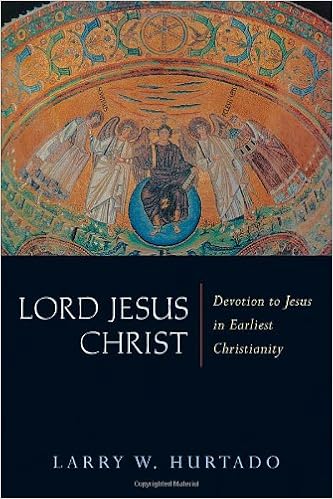I have no idea how much time I have spent crafting this chapter. I feel like I have written it several times over the last couple of years!
This opening chapter of my book manuscript introduces a new combination of already established theological concepts. It applies hermeneutic principles of interpretation to the historical development of the doctrine of the Trinity, thus opening a middle ground between "Triune God advocacy" and Biblical Unitarianism and, I hope, increase the opportunities for productive dialogue between these traditionally-opposed schools.
This, the opening chapter, is a very personal one.
Particular credit goes to Marc Gallagher who gave me some fantastic constructive criticism and advice on it a few months ago, although quite a number have contributed in various ways to the development of the thesis of this book, which I extract here from the uploaded chapter:
Please read or download the chapter in full here.
As readers may have learned already from a previous post, I haven't had much luck with my first three publishers, so until the book situation changes, I will tend to prioritise my other goals via this blog. Hopefully, folks might at some point realise that the Triune Hub hypothesis could give new leverage and clarity to the trinitarian enterprise. If that does happen, I may not even be the best person to publish on it. I'm more committed to getting a more accurate perspective of the past and improving the state of Christian apologetics to mind too much, although I have wondered and prayed about a partnership. But this chapter remains one of my most nurtured, careful and developed pieces I have written to date, so if you would like to read it I'd love to hear your feedback.
Blessings.
This opening chapter of my book manuscript introduces a new combination of already established theological concepts. It applies hermeneutic principles of interpretation to the historical development of the doctrine of the Trinity, thus opening a middle ground between "Triune God advocacy" and Biblical Unitarianism and, I hope, increase the opportunities for productive dialogue between these traditionally-opposed schools.
This, the opening chapter, is a very personal one.
Particular credit goes to Marc Gallagher who gave me some fantastic constructive criticism and advice on it a few months ago, although quite a number have contributed in various ways to the development of the thesis of this book, which I extract here from the uploaded chapter:
First century Christian faith did indeed seem to have – at least in the more successful strands of Christianity of the time – an all-new trinitarian hub, and indeed did not yet feature a tri-personal God. The latter would be the expression and safeguarding of the former. That is the thesis of this book: the Triune God is the fourth-century expression and safeguarding of the first-century triune faith.
Please read or download the chapter in full here.
As readers may have learned already from a previous post, I haven't had much luck with my first three publishers, so until the book situation changes, I will tend to prioritise my other goals via this blog. Hopefully, folks might at some point realise that the Triune Hub hypothesis could give new leverage and clarity to the trinitarian enterprise. If that does happen, I may not even be the best person to publish on it. I'm more committed to getting a more accurate perspective of the past and improving the state of Christian apologetics to mind too much, although I have wondered and prayed about a partnership. But this chapter remains one of my most nurtured, careful and developed pieces I have written to date, so if you would like to read it I'd love to hear your feedback.
Blessings.


